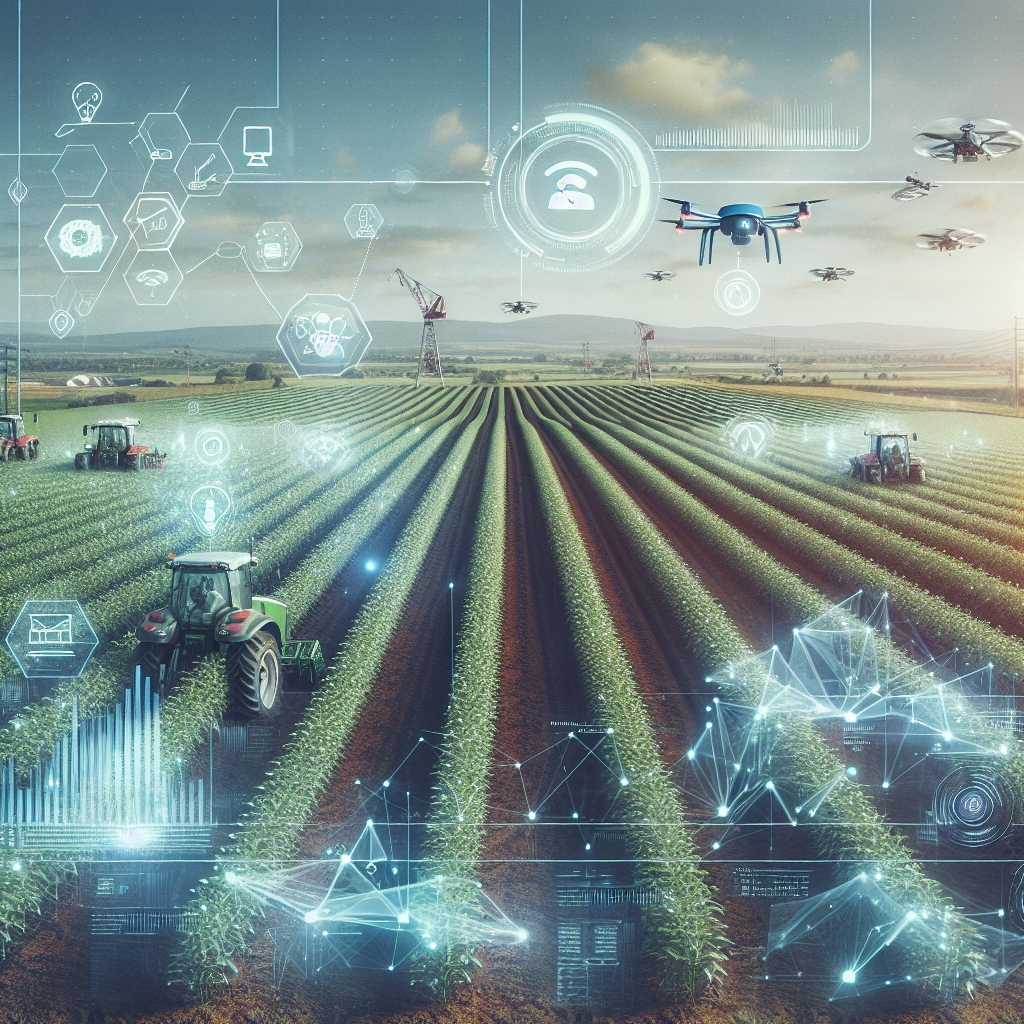Agricultural marketing and sales strategies have evolved significantly over the years, with the advent of technology playing a crucial role in transforming the way farmers and agribusinesses reach their target customers. One of the most significant technological advancements in recent years that has revolutionized the agricultural sector is the use of Artificial Intelligence (AI) to optimize marketing and sales strategies.
AI refers to the simulation of human intelligence processes by machines, specifically computer systems. It involves the use of algorithms and big data to analyze patterns, predict trends, and make decisions without human intervention. In the agricultural sector, AI has been used to improve crop yields, manage resources efficiently, and enhance overall productivity. However, one of the most promising applications of AI in agriculture is its ability to optimize marketing and sales strategies.
Using AI to optimize agricultural marketing and sales strategies can provide a wide range of benefits to farmers and agribusinesses. By harnessing the power of AI, farmers can make more informed decisions, target their marketing efforts more effectively, and increase their sales revenue. In this article, we will explore how AI can be used to optimize agricultural marketing and sales strategies, as well as address some frequently asked questions about this emerging technology.
1. Predictive Analytics
One of the key ways AI can optimize agricultural marketing and sales strategies is through predictive analytics. By analyzing historical data, market trends, and other relevant factors, AI algorithms can predict future sales patterns, help farmers identify potential customers, and forecast demand for their products. This allows farmers to make informed decisions about when and where to sell their products, as well as how to price them competitively.
2. Personalized Marketing
AI can also be used to personalize marketing efforts, tailoring messages and promotions to individual customers based on their preferences and buying behavior. By analyzing customer data and behavior patterns, AI algorithms can create targeted marketing campaigns that are more likely to resonate with customers and drive sales. This not only helps farmers reach their target audience more effectively but also improves customer satisfaction and loyalty.
3. Supply Chain Optimization
AI can optimize the supply chain by predicting demand, managing inventory levels, and streamlining distribution processes. By analyzing data from multiple sources, including weather patterns, market conditions, and transportation logistics, AI algorithms can help farmers optimize their supply chain operations, reduce costs, and improve efficiency. This can lead to faster delivery times, lower inventory holding costs, and ultimately, higher profits.
4. Price Optimization
AI can also be used to optimize pricing strategies, helping farmers determine the best prices for their products based on market conditions, competitor pricing, and customer demand. By analyzing historical data and market trends, AI algorithms can recommend optimal pricing strategies that maximize revenue and profitability. This can help farmers stay competitive in the market and ensure they are getting the best possible return on their products.
5. Customer Relationship Management
AI can enhance customer relationship management by analyzing customer data, predicting buying behavior, and automating communication with customers. By leveraging AI-powered CRM systems, farmers can better understand their customers’ needs and preferences, personalize their interactions, and build stronger relationships. This can lead to increased customer satisfaction, repeat business, and word-of-mouth referrals.
Frequently Asked Questions (FAQs)
Q: How can AI help farmers target their marketing efforts more effectively?
A: AI can help farmers target their marketing efforts more effectively by analyzing customer data, predicting buying behavior, and creating personalized marketing campaigns. By leveraging AI algorithms, farmers can identify potential customers, tailor their messages to their preferences, and reach them through the most effective channels.
Q: Can AI help farmers optimize their pricing strategies?
A: Yes, AI can help farmers optimize their pricing strategies by analyzing market conditions, competitor pricing, and customer demand. By using AI algorithms to analyze historical data and market trends, farmers can determine the best prices for their products that maximize revenue and profitability.
Q: How can AI enhance customer relationship management for farmers?
A: AI can enhance customer relationship management for farmers by analyzing customer data, predicting buying behavior, and automating communication with customers. By leveraging AI-powered CRM systems, farmers can better understand their customers’ needs and preferences, personalize their interactions, and build stronger relationships.
Q: What are the benefits of using AI to optimize agricultural marketing and sales strategies?
A: The benefits of using AI to optimize agricultural marketing and sales strategies include increased sales revenue, improved customer satisfaction, enhanced efficiency, and lower costs. By harnessing the power of AI, farmers can make more informed decisions, target their marketing efforts more effectively, and ultimately, increase their profitability.
In conclusion, AI has the potential to revolutionize the way farmers and agribusinesses market and sell their products. By leveraging the power of AI algorithms, farmers can make more informed decisions, target their marketing efforts more effectively, and optimize their sales strategies to maximize revenue and profitability. As AI continues to evolve and become more sophisticated, its applications in agriculture are only expected to grow, offering farmers new opportunities to improve their operations and stay competitive in the market.

